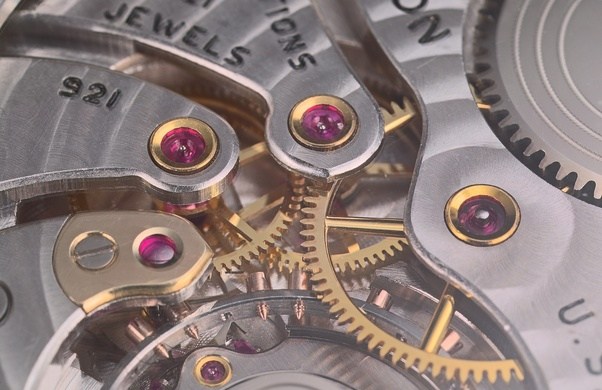
PalExpo to showcase jewellery-making expertise
The world of high-quality jewellery- and watch-making has always been labour-intensive, requiring many people with intricate skills all along the manufacturing process.
And while making jewellery still involves many people, increasingly sophisticated instruments, robotics and automation technologies, as well as new materials and additive manufacturing are taking the sector to a whole new level.
An industry event in Geneva, Switzerland called EPHJ-EPMT-SMT describes itself as “the only trade show in the world [which showcases] all high-precision skills in the areas of watchmaking and jewellery, microtechnology and medical technology”.
It’s not just skills on show, of course, but also the materials and equipment, although you do need some level of verbal skill just to say the name of the event.
The shorter name for it is “PalExpo Geneva”, and this year the event is set to host to around 850 exhibitors and more than 20,000 visitors.
Switzerland, as most will know, is famous for watchmaking, and jewellery is closely connected with the sector, especially since jewels feature in many high-quality watches.
In fact, some people judge the quality or value of a watch based on how many jewels it has.
By jewels, they mean rubies, which are often used in the joints of the mechanical parts within the watch, the core of which is called the watch “movement”.
Rubies are used as bearings for pivots to reduce friction. It’s generally thought that the more jewels a watch has, the less friction it generates with its mechanical motions.
But making jewellery-makers obviously do more than just make rubies for watches. To give you a better idea of the sector, below we highlight some of the exhibitors at the EPHJ which specialise in materials and technologies for jewellery-making.
Alfatool specialises in the production of micro-cutting tools in tungsten carbide with a high precision and finishing.
Tungsten is one of the hardest and rarest metals found naturally on Earth.
Alfatool’s tungsten micro-cutting tools are used in watchmaking, jewellery, medical, eyeglass manufacturing, aircraft and other sectors.
CooksonGold is a supplier of direct metal 3D printing systems which use advanced metal powders.
These metals include a type of platinum, silver, and two types of gold.
The company partners with Electro-Optical Systems, which enables it to provide the jewellery- and watch-making industry a unique e-manufacturing solution.
Design Engineering offers a range of 3D computer-aided design software based on the well-known Rhinocerous application.
Its software is specially configured for the design of jewellery, watches and accessories.
It also offers design and prototyping services, as well as training in how to design jewellery using its software.
IonBond provides thin-film coating which are used in a huge variety of industries, including aerospace.
For its medical customers, the company can provide biocompatible coatings for medical implants and instruments.
Its main coatings are PVD (physical vapour deposition), PACVD (plasma-assisted chemical vapour deposition) and CVD (chemical vapour deposition).
Mikisa is primarily a retailer of certified diamonds, engagement rings and fine jewellery.
If you own a massively expensive watch which contains diamonds, they were probably supplied by this company.
The company manufactures and supplies full-cut and single-cut diamonds from 0.5 mm up to 3.6 mm to high-end jewellery and watch brands.
Nevacril specialises in producing accessories in leather, wrapping, boxes, displays and shop in concept shop for watches and jewellery.
Nevacril does not seem to supply equipment to watch- and jewellery-makers but provides manufacturing services.
It also offers custom-made furniture for jewellery stores.
